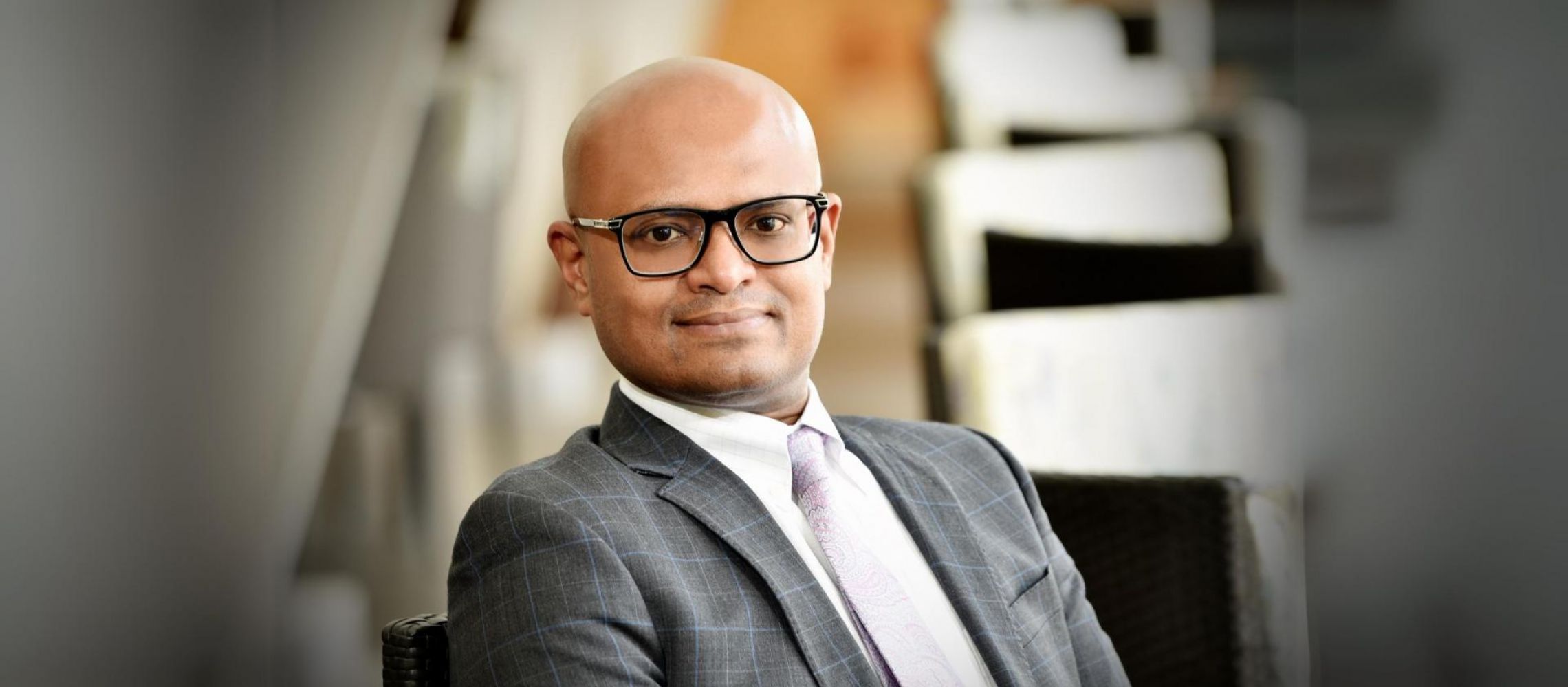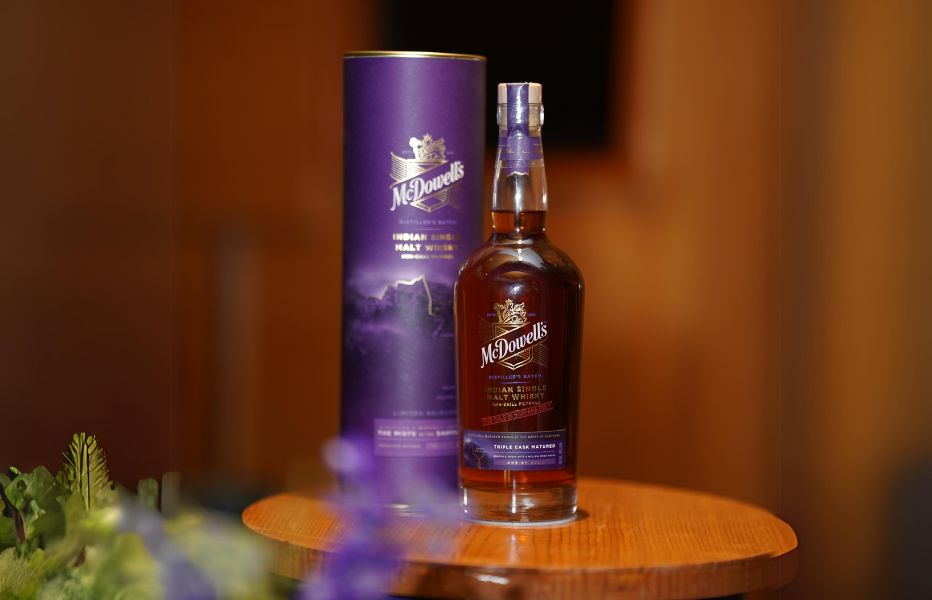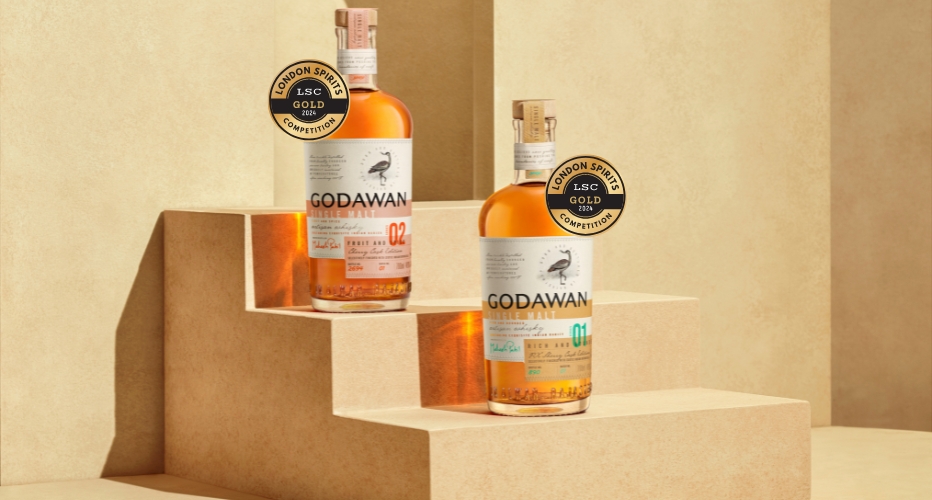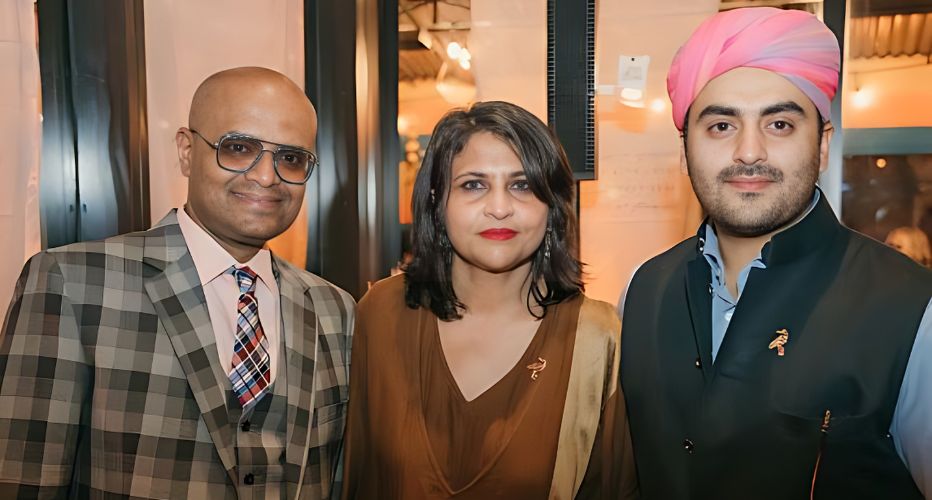Submission Deadline
28 February 2026
Judging
Date
24 & 25 March 2026
Winners Announcement
22 April 2026
28 February 2026
24 & 25 March 2026
22 April 2026

In a rapidly evolving market, staying ahead requires a blend of innovation, consumer insights, and a commitment to sustainability. Vikram Damodaran, Chief Innovation Officer at DIAGEO India, is at the forefront of this dynamic landscape. With a focus on entrepreneurship and innovation, Vikram has spearheaded numerous product launches and innovation platforms. In this editorial interview, Vikram shares his insights on how DIAGEO India approaches innovation, premiumization, and sustainability in the alcoholic beverage market.
A big shift we’ve noticed in recent times is that consumers across India are seeking better experiences. This means they are spending more, specifically on liquids that offer much better value to consumers. Staying on top of this means catering to this demand, with products that feature artistic contributions, notes from various distilleries and terroirs, and limited releases.
The Indian single malt industry is steadily moving towards premium single malt offerings. About a decade ago, there were only two or three players in the Indian single malt space. Today we’re looking at over 37 different expressions. Additionally, the last 10-15 years have seen consumers driving growth in two major ways. One is affluent consumers who are well-traveled and live in a well-connected economy, tending to spend more – the consumers who create trends. The second is how more consumers across different age groups are prioritising high-quality and made-in-India products. These are modern affluent Indians are looking for luxury that makes them feel rooted and enriched. The launch of McDowell’s & Co Distiller’s Batch of Indian Single Malt marks the genesis of India’s growing affinity for premiumization.

Image: McDowell's & Co Distillers Batch Indian Single Malt
The idea behind reinventing McDowell’s was to create a whisky made by the people, for the people. Collaborating with SMAC was a natural step in that direction – working with people who are in tune with the whisky-making process. We tapped into their insights, from conceptualization to the selection of casks, to finishing, to position this as a whisky for everyone.
Godawan embodies sustainability at its core through multiple avenues, covering three main areas - distillery excellence, water rejuvenation, and conservation.
For one, Godawan’s state-of-the-art distillery at Alwar, Rajasthan was also recently awarded the ‘Distillery of The Year’ Award at the Icons of Whisky 2024 – a testament to our commitment to its home and environment. The Alwar distiller is located in the midst of a barley-rich region and is also Asia’s first spirit distillery to attain the Alliance for Water Stewardship (AWS) Core Certification and Platinum Accreditation. The location is powered by Hydro Panels, which is an innovative solution that delivers demineralized water. 55% of the total consumption at the Alwar distillery is powered by the sun. Additionally, Godawan works with local communities, offering training in barley production – helping overcome the challenge of water scarcity.
With regards to conservation, with every bottle of Godawan sold, the company contributes to conserving the habitat of the Great Indian Bustard – a bird that symbolizes Godawan’s legacy, heritage, and home. It was once the national bird of India and could be found across the country but is now marked Critically Endangered in the IUCN Red List.

Image: Godawan Artisanal Single Malt
Our commitment to constant craft spirits is reflected in our ‘Drink Better, Not More’ philosophy – a focus on providing the best possible beverage experiences for our consumers. We are redefining the spirits landscape through research and development initiatives at our award-winning distilleries. Current alco-bev culture indicates that the appreciation for craft and artisanal spirits will only increase, with studies highlighting that consumers are now gravitating to products for a better world and balanced life. In line with this, we are proud to pioneer The Good Craft Co., DIAGEO India’s incubator to accelerate the alco-bev start-up ecosystem. Set up in 2022, this was established to accelerate transformational innovation and strengthen the brand’s craft and premium drinks portfolio.
The last five to six years have seen a growing trend for non-alcoholic drinks globally. This was accelerated by the pandemic, which increased consumer focus on health, abstinence, wellness, and holistic living. There are, of course, certain caveats to keep in mind about non-alcoholic beverages, such as a clear distinction between the formal term ‘non-alcoholic beverages’ versus just a regular drink which happens to be non-alcoholic in nature. These learnings are still evolving, even in markets that were the first to adopt non-alcoholic beverages like the US, or certain countries in Europe.
Coming to India, this trend is extremely nebulous. There are some early players and a few startups in this space. But I think we've got a long way to go before the trend matures. Will there be an increase in non-alcoholic beverage consumption? I believe the answer is yes because it's clearly a viable alternative. It's a wonderful choice to make when you want to focus on health, and I believe that trend will grow.
The fundamental challenges that Indian brands face while expanding are establishing awareness and driving advocacy. They also struggle with education about the brand ethos, purpose, story, and provenance. Whatever the type of spirit may be, what consumers clearly want from brands are authentic offerings and propositions. They are specifically seeking out propositions that stay true to the claims that are made. Establishing the truth behind the brand is what takes the most time.
My learning with Godawan has been to stay focused - enter a few markets but execute it well. Make sure you’re building the right kind of advocates for your brands, who can clearly speak to the consumer, and over time you will see the brand grow.
Entrepreneurship in a large corporate setting is no different from being a solo entrepreneur. You still have to pitch for funds. You have to sell a dream and convert that dream to reality. You must stay true to your commitments and swim against the tide all the time. So, being an entrepreneur in a large corporate firm is just as exciting as starting off on your own.
There are some advantages of doing this inside a large corporate firm – you do get the financial muscle and the commitment of time that you need. Having said that, there are equal downsides as well - sometimes alignments are a problem and the time to take certain positions can be an issue. But, when you have all the stars aligned and a corporate setting that is willing to encourage entrepreneurism and entrepreneurs, it’s a great place to be. That’s pretty much what I've had in Diageo, support to be a true entrepreneur.

Image: Co-founder Shweta Jain and Vikram Damodaran took DIAGEO India's Artisanal Single Malt, Godawan, to New York City.
Having the best of both global and Indian brands is actually a blessing. The way I prioritize my time is by going after what the consumer wants. If the consumer today believes in the repertoire of choices that includes the best of both worlds, then so be it. That essentially is what guides my choice.
There is also my personal vision guiding me, which is putting Indian Craft Spirits on the global map. While they rest on the shoulders of giants like Johnnie Walker, Guinness, Smirnoff, and several other global brands, I think what it gives us is the legitimacy, capability, and infrastructure to build beautiful works of art across the Indian alcoholic beverage spectrum – which is where my heart lies.
Vikram Damodaran's perspective on innovation, consumer trends, and sustainability offers a compelling glimpse into the future of India's beverage market. As consumer preferences continue to evolve, brands that can adapt and innovate are poised for success. Diageo India's commitment to craftsmanship, sustainability, and consumer-centric products positions them well to navigate the challenges and opportunities that lie ahead.
In conversation with Malvika Patel, Editor and VP, Beverage Trade Network
Show your spirits where it matters. Get your products tasted by top bartenders, buyers and experts at the London Competitions — enter now.